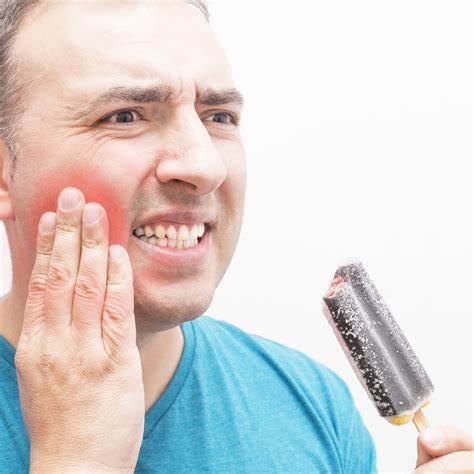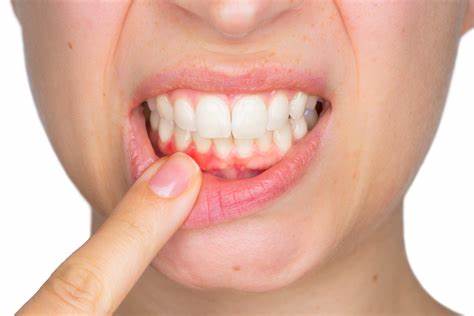5 tips on how to protect your teeth from cold

Healthy teeth are the biggest factor affecting people's confidence. That's why we care so much about our teeth. As we slowly entered the fall, the weather gradually deteriorated. In addition, the temperature is slowly falling, and it will freeze outside in a few months. Do you know that cold weather can make you susceptible to some dental problems?
Some of us have sensitive teeth that will definitely get annoying in the winter. This is a time when sudden temperature changes are quite common during the year. It can cause severe or uncomfortable teeth.
Here are some dental health tips that can help you protect your teeth from the cold.
If you haven't checked your teeth recently, you can consider going to an expert. This type of dental medical center provides a variety of services for patients, a bit like a perfect smiling spa. Your teeth may be sensitive to cold weather because they have cracks or the enamel is weakened or thinned. Other causes of cold weather sensitivity may be decay of the gums, too hard brushing, infection, gingivitis and biting or grinding.
A professional perfect smile spa will be able to determine what course of action will have the best effect on your teeth and check you before they. This is the only way to make sure you have strong, healthy teeth. After you've handled this, you can try the following tips on how to reduce the cold sensitivity of your teeth.
Cold tooth sensitivity can be fixed quite easily at home. You only need to strengthen your oral hygiene game. Always brush your teeth after meals, don't forget to floss. If you still feel pain after a rapid temperature change, you may want to try to replace your toothpaste.
For example, potassium-based desensitizing toothpaste is a good way to help reduce tooth sensitivity. If you know you have this problem, you should use this toothpaste at least one month before the temperature drops because it takes time to work. It depolarizes the exposed dentin or root area, which is why it takes time to achieve full results, but if so, believe me, you can say goodbye to cold sensitivity.
Another good choice is calcium-based desensitizing toothpaste. It relieves pain immediately by plugging the opening that surrounds the calcium of the teeth. It mimics the body's natural remineralization to protect sensitive nerve endings in the teeth. Also, make sure the toothbrush brush used is soft.
It is equally important to maintain moisture during the winter and to retain moisture during the hot summer months. do not forget! Experts recommend drinking at least 2 liters of water a day. This not only keeps your brain and body healthy, but also keeps your teeth healthy. Proper drinking water ensures that your gums and teeth are wet. And, by drinking enough water, you will produce more saliva. This is important, especially in the cold months, because people know that saliva is easier to dry in cold weather. If there is not enough saliva, the bacteria will multiply in our mouth.
Try to avoid sugary drinks because they are not a good way to keep moisture, and sugar helps bacteria to multiply. Stick to drinking water and of course your favorite tea. Also, if your teeth are sensitive to cold, you should avoid eating acidic foods as this will also cause or exacerbate their sensitivity.
If it's cold outside and you know your teeth are sensitive to cold, you must limit your time outdoors. Being able to see your breath is a sign that you should head to a comfortable and warm room as soon as possible.
Like other materials, our teeth are made of materials that expand and contract when the temperature rises or falls. This is why sudden changes in temperature can cause fine filaments to break on the surface of the tooth. These cause the teeth to be highly sensitive to temperature changes.
If you have to go out to work, be sure to wear some kind of scarf so that it can hold warm things in your mouth. Your diet is closely related to your dental health because it is closely related to your overall health. I have already mentioned that you should avoid eating acidic foods, but let us delve into some more specific issues. Not only pay attention to what you eat, but also pay attention to what you eat. A healthy diet will help you smooth out your defense against cold weather. Always consult a doctor before deciding to start any diet plan. When you choose food, remember his advice.
Some of us have sensitive teeth that will definitely get annoying in the winter. This is a time when sudden temperature changes are quite common during the year. It can cause severe or uncomfortable teeth.
Here are some dental health tips that can help you protect your teeth from the cold.
If you haven't checked your teeth recently, you can consider going to an expert. This type of dental medical center provides a variety of services for patients, a bit like a perfect smiling spa. Your teeth may be sensitive to cold weather because they have cracks or the enamel is weakened or thinned. Other causes of cold weather sensitivity may be decay of the gums, too hard brushing, infection, gingivitis and biting or grinding.
A professional perfect smile spa will be able to determine what course of action will have the best effect on your teeth and check you before they. This is the only way to make sure you have strong, healthy teeth. After you've handled this, you can try the following tips on how to reduce the cold sensitivity of your teeth.
Cold tooth sensitivity can be fixed quite easily at home. You only need to strengthen your oral hygiene game. Always brush your teeth after meals, don't forget to floss. If you still feel pain after a rapid temperature change, you may want to try to replace your toothpaste.
For example, potassium-based desensitizing toothpaste is a good way to help reduce tooth sensitivity. If you know you have this problem, you should use this toothpaste at least one month before the temperature drops because it takes time to work. It depolarizes the exposed dentin or root area, which is why it takes time to achieve full results, but if so, believe me, you can say goodbye to cold sensitivity.
Another good choice is calcium-based desensitizing toothpaste. It relieves pain immediately by plugging the opening that surrounds the calcium of the teeth. It mimics the body's natural remineralization to protect sensitive nerve endings in the teeth. Also, make sure the toothbrush brush used is soft.
It is equally important to maintain moisture during the winter and to retain moisture during the hot summer months. do not forget! Experts recommend drinking at least 2 liters of water a day. This not only keeps your brain and body healthy, but also keeps your teeth healthy. Proper drinking water ensures that your gums and teeth are wet. And, by drinking enough water, you will produce more saliva. This is important, especially in the cold months, because people know that saliva is easier to dry in cold weather. If there is not enough saliva, the bacteria will multiply in our mouth.
Try to avoid sugary drinks because they are not a good way to keep moisture, and sugar helps bacteria to multiply. Stick to drinking water and of course your favorite tea. Also, if your teeth are sensitive to cold, you should avoid eating acidic foods as this will also cause or exacerbate their sensitivity.
If it's cold outside and you know your teeth are sensitive to cold, you must limit your time outdoors. Being able to see your breath is a sign that you should head to a comfortable and warm room as soon as possible.
Like other materials, our teeth are made of materials that expand and contract when the temperature rises or falls. This is why sudden changes in temperature can cause fine filaments to break on the surface of the tooth. These cause the teeth to be highly sensitive to temperature changes.
If you have to go out to work, be sure to wear some kind of scarf so that it can hold warm things in your mouth. Your diet is closely related to your dental health because it is closely related to your overall health. I have already mentioned that you should avoid eating acidic foods, but let us delve into some more specific issues. Not only pay attention to what you eat, but also pay attention to what you eat. A healthy diet will help you smooth out your defense against cold weather. Always consult a doctor before deciding to start any diet plan. When you choose food, remember his advice.
In general, you can choose from the following food groups: snacks: vegetables, fruits, whole wheat, lean beef, skinless poultry and fish, dried beans and peas, fat-free or low-fat dairy products. It is important to limit the amount of snacks. This is because eating snacks is much more harmful to teeth than dinner. You may want to know why? Well, because there is more saliva in the normal diet, it can successfully wash the food from the mouth and reduce the effects of acid.
YOU MAY ALSO LIKE





